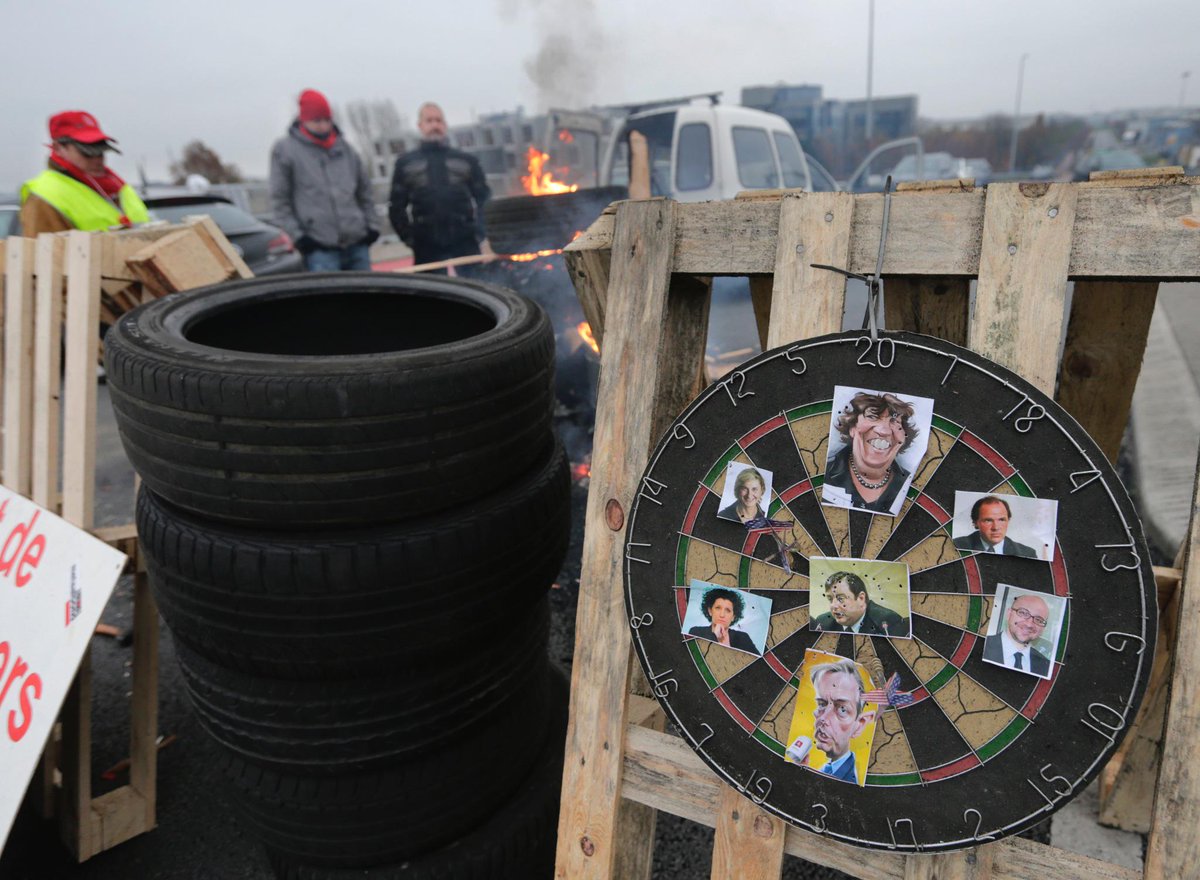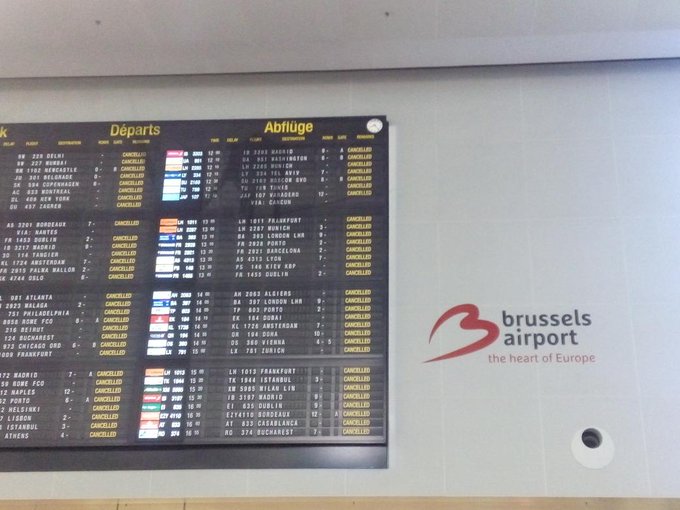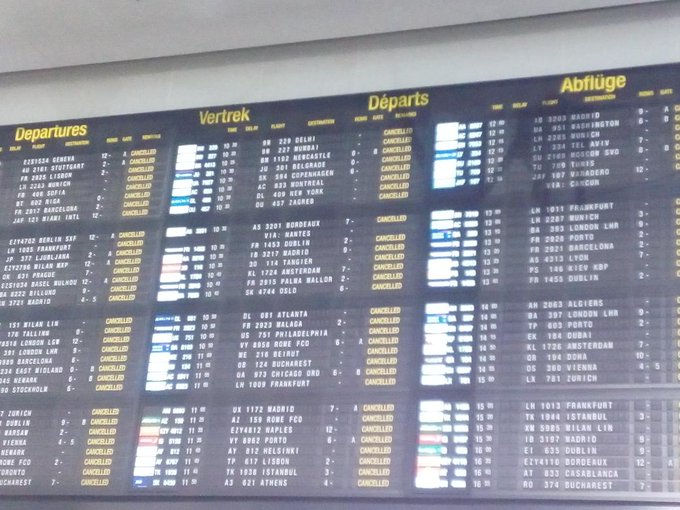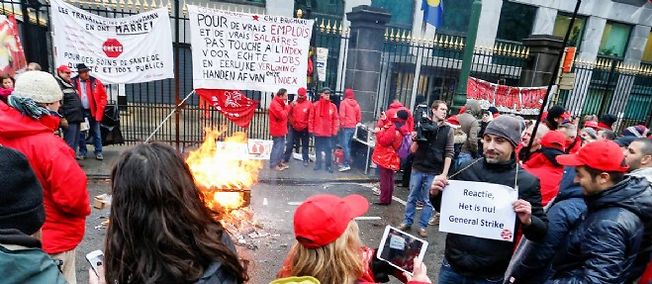Belgium
paralyzed in biggest transport strike in years
Belgium has been brought to a standstill, as air, rail and ferry workers nationwide embarked on their biggest strike in years. The 24-hour walkout over the government’s austerity policies is set to ground 600 flights into and out of the country.
:
RT,
15
December, 2014
"All
flights are cancelled. Everything is immobilized until the same time
tomorrow," Florence Muls, Brussels Airport spokeswoman told
journalists. Officials at Charleroi airport, just outside the
capital, earlier said that incoming traffic would be diverted
starting 21:00 GMT on Sunday, while outgoing flights would be
cancelled.
A
“real disaster” is how Charleroi Airport managing director
Jean-Jacques Cloquet called the delays and cancellations. With the
busy holidays travel period approaching, travelers should expect to
see the effects of the strike in the days ahead, the airport chief
warned.
Travelers
at Liege, Antwerp and Ostend airports are all feeling the blow as
well.
The
same 24-hour timeframe applies to the national network of SNCB train
services. Other rail services simply won’t travel to the capital,
Eurostar says its London-Brussels trains will terminate in Lille,
France and will not continue across the border into Belgium. The
company expects further disruptions early on Tuesday, and outbound
services to the Netherlands, Germany and France are also facing
cancellation.
Belgium
is also experiencing school, factory and other business closures on
Monday. Bus services have joined the nationwide strike, together with
other ground services and the metro.
The
protests are led by a number of leading trade unions, and began in
November, when clashes broke out as more than 100,000 protesters
marched in Brussels against the government’s austerity measures.
Police deployed water cannon as dockworkers, metalworkers and
students took to the streets.
The
new Belgian government, which assumed power in October, has caused
unrest with plans to raise the retirement age, cancel a wage rise for
government workers in line with inflation, and cut health and social
security benefits - moves that protesters say undermine the country's
welfare state. The cuts are intended to save €11 billion ($13.8
billion).
8:27 PM - 15 Dec 2014 Zaventem, België
The
country had been without leadership for five months before a
four-party governing coalition was forged between Belgium’s primary
center-right parties. At 38, Prime Minister Charles Michel is one of
Europe’s youngest leaders, and the country’s youngest in 200
years. His pro-business Reformist Movement (MR) is spearheading the
austerity policies the protesters take issue with. He plans to
implement the cuts over a five-year period.
Monday’s
strike is a culmination of preceding smaller events, all
transport-related. "The government keeps saying there is room
for negotiation on the very serious measures that have been decided,
but the trade unions remain without concrete answers,” General
Federation of Belgian Labor (FGTB) union member Philippe Van Muylder
told Belga news agency before Monday’s walkout.
"There
is no dialogue."
Threats
to the job and welfare sectors are felt across much of the EU.
On
December 12, two of Italy’s biggest trade unions amassed
40,000 people to protest Prime
Minister Matteo Renzi’s reforms, which they feel are hitting the
poorest people the hardest. The country is in its longest recession
since WWII, and the government says the measures are needed to
jump-start the economy.
In
France, thousands of university staffers and students
have expressed their
outrage over education budget cuts, with facilities they say are
“literally in ruins.” Joined by trade unions, they marched with
banners to protest the “profound crisis” in higher education.
Spain,
which has been in the grip of violent rallies throughout the crisis,
has recently passed an
anti-protest law, giving the government sweeping authority to deal
with dissent harshly, with fines of up to €600,000 ($746,000) for
anyone who stops a public service building from operating normally.
Protesters
have also been coming
out by
the thousand in Greece to protest EU austerity, just as the Athens
Stock Exchange had its biggest drop since 1987.










No comments:
Post a Comment
Note: only a member of this blog may post a comment.